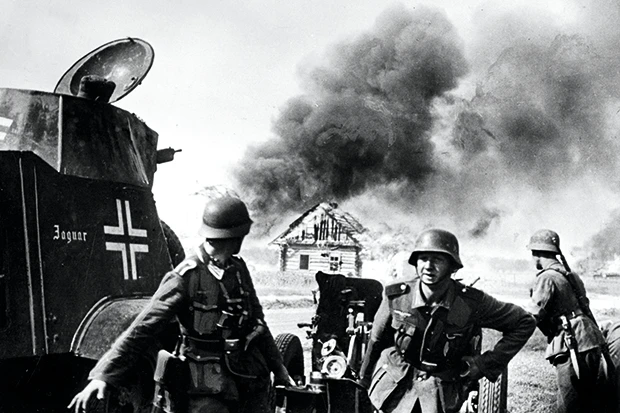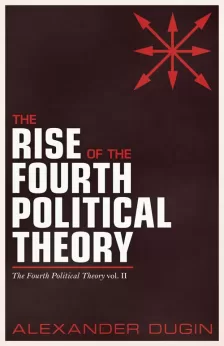- Sixty years ago, on 22 June 1941, the German Wehrmacht crossed the demarcation line of the Soviet sphere of influence along a broad front.
- The German Reich thus responded to the subversive warfare directed by Stalin’s Communist International, which had already brought Germany to the brink of a Bolshevik overthrow in the 1920s.
- The European dimension of this defensive battle against the Asian counter-revolution was evident in the large number of foreign volunteers in the Waffen-SS, which thus became the first and so far only European army fit for war.
- The question of whether the German Reich was the aggressor or merely preempted a Soviet attack is of secondary importance because states have the right to wage war.
- The German Wehrmacht saved Western Europe and the larger part of Germany from Bolshevism. However, it could not prevent the destruction of European culture through the Americanization of lifestyles.
- As long as National Socialism represented the national principle, that is, the right of self-determination of every people, it was on the road to victory. When it became imperialistic in the East and disregarded the right of self-determination of peoples, the path to defeat began.
- In the West, the Wehrmacht triumphed because it represented the National Socialist principle. In the East, however, it had become a fascist-antique power and was categorically incapable of winning over the Eastern peoples, so Stalin’s oriental despotism could ally with the liberal capitalist states of the Anglo-Saxon naval powers, thereby gaining a historical reprieve of half a century.
- The shadows of oriental despotism and the Asian mode of production (centralized planned economy) will only recede from the new Russia when the German people (and with them the peoples of the West) have freed themselves from the dictatorship of capital. Only then will the sacrificial journey of the German Wehrmacht and the European Waffen-SS, which stopped Stalin’s new Mongol invasion, have found its historical fulfillment.
In this essay from 2001, Reinhold Oberlercher interprets Operation Barbarossa and its historical implications, presenting a perspective that diverges significantly from mainstream analysis.
The Arktos Restoration InitiativeWe have handpicked a few distinguished titles, previously lost to censorship, befitting any refined bookshelf. These esteemed classics are now offered in limited leather-bound editions, with a mere 100 copies per title. Owning one not only grants you a collector’s item but also supports our mission to restore them in paperback for all. Your contribution aids the metapolitical battle, ensuring that vital ideas and concepts remain accessible to an ever-expanding audience. | |||
|---|---|---|---|
| I |  $129.50 |  $79.50 | |
Translated by Constantin von Hoffmeister







